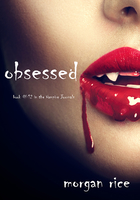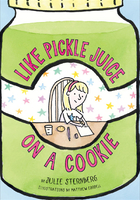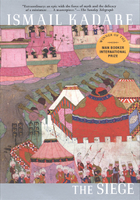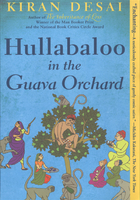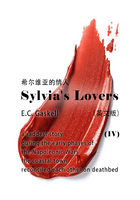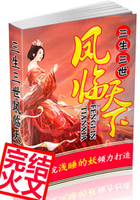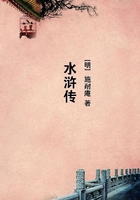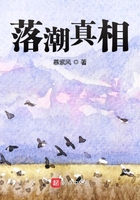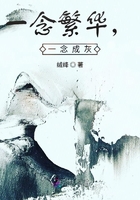1928 JANUARY – TSE seeks to raise money to keep The Criterion in business. The sum of £750 a year is needed to subsidise the magazine. Arnold Bennett, after a personal appeal by TSE and Humbert Wolfe, refuses immediate help. 'I showed little interest,' Bennett recorded in his journal. 'The New Criterion is a dull production and always will be.' 13 JANUARY – TSE dines with the businessman F. S. Oliver, who proves to be a generous benefactor: he contributes towards the production of the magazine no less than £250 a year for three years. In time, nine other guarantors (assiduously cultivated) come forward with significant support: TSE's affluent and well-connected cousin Marguerite Caetani, Princesse de Bassiano; Charles Whibley; Bruce Richmond (editor of the TLS); May Sinclair, novelist; Alan Lubbock; D. O. Malcolm, diplomat and businessman (Director of the British South Africa Company); J. Hugh Smith; Ethel Sands, American heiress and artist; and Conrad Ormond (director of Doubleday Doran & Co., publishers). 16–23 JANUARY – TSE, in Paris, reports that Vivien 'is not fit' to come home from Malmaison. He loyally defends the right-wing writer Charles Maurras against charges that he is anti-Christian. In 'The Action Fran?aise, M. Maurras and Mr Ward', The Monthly Criterion (March 1928), TSE says he has been 'a reader of the work of M. Maurras for eighteen years', and, far from 'drawing him away from' Christianity – during 1926 Maurras was even condemned by the Pope, with five of his books being placed on the Index – Maurras's writings had had the opposite effect on himself. 31 JANUARY – Vivien writes to Ottoline Morrell: 'I am very miserable, & it is all quite useless. You must have gathered from Tom what a horrible mess all this is. But as you can see, he simply hates the sight of me. And I don't know what to do.' FEBRUARY – TSE publishes 'From Anabase' (extracted from his translation of Anabase, by St-John Perse) in The Monthly Criterion 7. By mid-February he is in Paris once more. Vivien returns with TSE to London in the third week of the month. TSE tells Morrell (20 February), 'It may not be a bad thing.' Seven years later, VHE will write in her diary, remembering this moment: 'My dear Tom brought me back with him, but he did not want to. He would have much preferred for me to remain in France … [T]hey were all furious at my leaving … It was a very bad time & I felt terribly frightened at what I had done. So that I was out of my mind, & so behaved badly to Tom & got very excited. It seemed that everything he said was a sneer or an insult. When we got to Victoria we were met by Mother & Maurice & their behaviour was sinister & unkind.' Vivien calls on Morrell and writes to her afterwards, 'I am sorry I talked so much about Tom – of course he is a very old friend of yours – & a great friend & no one likes hearing their old friends spoken against. I am very unhappy, & as you agreed with me – quite defenceless. So there it is. If you hear of me being murdered, don't be surprised!' 23 FEBRUARY – TSE attends the Pepys Feast at Magdalene College, Cambridge, as the guest of I. A. Richards. MARCH – TSE makes his first confession, to Father Francis Underhill (whom he calls 'my spiritual director'). He tells William Force Stead: 'I … feel as if I had crossed a very wide and deep river.' He takes a vow of celibacy. 1 MARCH – publication of Wilkie Collins's The Moonstone, with an Introduction by TSE ('The World's Classics no. 316': 5,000 copies printed); it will be republished in SE as 'Wilkie Collins and Dickens'. TSE gives a talk on Tennyson and Whitman at the Poetry Bookshop, London. Mid-month, Vivien suffers from influenza. 25 MARCH – TSE delivers 'Preface' and 'A Dialogue on Poetic Drama' for publication in Of Dramatick Poesie: An Essay 1668 by John Dryden (London: Frederick Etchells & Hugh Macdonald, 1928). In the Spring of 1928, he publishes 'Perch'io non spero' (with the English text facing a French translation by Jean de Menasce), in Commerce: the poem will be Part I of Ash-Wednesday (1930). TSE assures Paul Elmer More, who is on a visit to England, that he is a 'strong High Churchman and an enemy to Rome'. 10 APRIL – he tells Force Stead, of his progress in religion: 'I do not expect myself to make great progress at present, only to "keep my soul alive" by prayer and regular devotions … I feel that nothing could be too ascetic, too violent, for my own needs.' In mid-month his invaluable secretary Irene Pearl Fassett falls gravely ill with tuberculosis and can no longer go to work: she offers her resignation. Still it is finally decided that the Criterion will continue as a quarterly; disingenuously, F&G puts out this statement: 'We are now able to announce that in consequence of reorganisation, and in conformity with the preference of many supporters, The MONTHLY CRITERION will henceforth appear in QUARTERLY form, resuming its original title, THE CRITERION. The next number will be published in June … The form will be similar to that of THE CRITERION immediately before its conversion into a Monthly, but the scope will be gradually extended.' MAY – TSE's essay 'The Humanism of Irving Babbitt' is accepted for publication in The Forum (New York): he is paid $125 for it. The second edition of The Sacred Wood is published. 'A Dialogue on Poetic Drama' is published in an edition of John Dryden's Of Dramatick Poesie: An Essay. 2 MAY – TSE visits Cambridge to speak to the Heretics Society: he stays at King's College. The following week, 16 MAY, he visits University College, Oxford, where he dines and talks to the Martlets. Vivien undergoes an operation on her teeth. Throughout the summer, the Eliots' house at 57 Chester Terrace has to be repaired and decorated: but the work is found to have been done so sloppily that in places it has to be done all over again. JUNE – Early in the month, Ottoline Morrell chats with TSE and subsequently gossips to Virginia Woolf; whereupon Woolf conveys the gossip to her sister: 'Tom is in a great taking with Vivien as mad as a hare, but not confined, and they give parties, where she suddenly accuses him of being in love with Ottoline (and me, but this Ott: threw in as a sop) and Tom drinks, and Vivien suddenly says when talk dies down "You're the bloodiest snob I ever knew" – so I have refused to dine there.' In MID-JUNE, TSE is happy to report to Caetani, 'We have been managing … very much better this spring, and I am hopeful. Vivien has been running her house well and we have seen a good many people.' 26 JUNE – TSE and VHE go to dinner at the Hutchinsons. TSE later writes to Mary Hutchinson: 'I was … extremely nervous as I anticipated that V. would make some statement: I hope it was not too trying for you, but she had had it disturbing her mind for so long that it was perhaps best to get it off.' At the dinner, VHE had managed to break a pearl necklace, which is recovered and returned to her only at the end of September. JULY – TSE goes on a weekend retreat. He publishes 'The Humanism of Irving Babbitt' in The Forum. Irving Babbitt and Paul Elmer More visit TSE in London, which he enjoys. TSE later writes of More that in him he found what he called 'an auxiliary to my own progress of thought, which no English theologian could have given me … I might almost say that I never met any Christians until after I had made up my mind to become one. It was of the greatest importance, then, to meet the work of a man who had come by somewhat the same route, to the same conclusions, at almost the same time: with a maturity, a weight of scholarship, a discipline of thinking, which I did not, and never shall, possess … My first meeting with [More] in London … seemed more like the renewal of an old acquaintance than the formation of a new one.' In the final week of the month, the death of Pearl Fassett causes considerable upset to both TSE and Vivien. AUTUMN – Virginia and Leonard Woolf, Mary Hutchinson and E. McKnight Kauffer discuss TSE's poetry at Chester Terrace. Woolf notes her recollections of TSE reciting poems in his 'curious monotonous sing-song'. 17 SEPTEMBER – TSE contributes a 'Preface' to This American World, by Edgar Ansel Mowrer: 1,000 copies are printed. He registers his sense of permanent displacement: 'it was not until years of maturity that I perceived that I myself had always been a New Englander in the South West, and a South Westerner in New England.' 24 SEPTEMBER – he publishes A Song for Simeon (Ariel Poem no. 16), illustrated by E. McKnight Kauffer: 3,500 copies. 26 SEPTEMBER – his fortieth birthday. 4 OCTOBER – TSE contributes an anonymous 'Preface' (recalling the town of Gloucester where he had spent his summers as a child) to Fishermen of the Banks, a collection of short stories by James B. Connolly. 11 OCTOBER – Geoffrey Faber invites TSE to write a pamphlet on Dante for publication in the F&G series 'The Poets on the Poets'. TSE moves to accept, but has to extricate himself gently from his prior commitment to write on Dante for the 'Republic of Letters' series put out by Routledge. It is agreed that he may write the 10,000-word pamphlet for F&G, on the understanding that he will make use of the material in a fuller monograph for Routledge at a later date. In the final week of October, he dines with Robert Frost, who is visiting London. 'Frost I rather like,' says TSE. But Frost's biographer Lawrence Thompson later told of a contrary reaction on the part of Frost: 'What annoyed Frost most was the way in which this native of St. Louis affected an English accent. Long before the evening was over, Frost decided to go on disliking Eliot as a tricky poet – and as a mealy-mouthed snob.' Allen Tate, in a letter to a friend written after a Criterion lunch that summer, says: 'Eliot, of course, was due to be the most interesting, but he is a Sphinx'. 9 NOVEMBER – Vivien reports that TSE has taken up dancing again, to the gramophone. TSE sits for a drawing by William Rothenstein which is published in Twelve Portraits (1928). 20 NOVEMBER – TSE publishes For Lancelot Andrewes: Essays on Style and Order – 1,500 copies are printed – dedicated 'For My Mother'. He declares in the preface: 'The general point of view may be described as classicist in literature, royalist in politics, and anglo-catholic in religion.' He says too that he is working on three books: 'The Outline of Royalism'; 'The Principles of Modern Heresy'; 'The School of Donne' – of which only the second will ever appear, in the form of After Strange Gods: A Primer of Modern Heresy (1934). 22 NOVEMBER – Vivien writes to Mary Hutchinson: 'I had a horrible affair at a hair-dresser's last Monday week, & I very nearly died. All last week I felt terribly ill, & I had to have 2 interviews with doctors. I have been afraid to go out, as I keep on having queer "turns" & feeling faint.' 23 NOVEMBER – publication of Ezra Pound, Selected Poems, edited with an Introduction by TSE – who writes in one advance copy: 'For Vivienne, in memory of many happy days with Ezra & Dorothy Pound. 21. 9. 1928'. DECEMBER – writes an introduction to The Merry Masque of Our Lady in London Town, by Charles A. Claye, performed by the Players from St Mary's, Graham Street, at Chelsea Palace Theatre, on 8, 12 and 22 Dec. 1928 (posthumously printed by Stanley Revell: not in Gallup, 1988).
1929 JANUARY – TSE writes 'Second Thoughts on Humanism'. He is in contact with the Americans Richard Blackmur and Lincoln Kirstein, of the periodical The Hound & Horn (New York), which he admires, and which is modelled on The Criterion. Vivien falls ill with what TSE calls 'the current form' of influenza. TSE refuses evening engagements throughout January. For two months they have two servants – 'a middle aged cook-general and a girl' – and 'old Janes [74] every morning to do the heavy work' – to run their house at 57 Chester Terrace (now Chester Row). TSE meets Allen Tate in London. FEBRUARY – The Eliots begin house-hunting in Bloomsbury: they hope to be able to move into a flat at 51 Gordon Square (Lytton Strachey's former address). TSE takes an interest in the work of the young American Edward Dahlberg, who tells D. H. Lawrence that TSE had been 'wonderfully gentle' to him in London. 11 FEBRUARY – Ottoline Morrell calls on Vivien Eliot, who becomes fractious when Ottoline does not remember Pearl Fassett (who had just died and for whom Vivien felt considerable affection). When TSE comes into the room in company with Prince Mirsky (whom Morrell did not like), Morrell said she felt annoyed by TSE's references to 'uneducated' writers such as Blake and Lawrence. TSE is offered by Paul Elmer More the opportunity to deliver the Vanuxem Lectures at the University of Virginia; he declines. TSE works on six talks on 'Seventeenth Century Poetry', to be delivered on BBC radio: the series – 'The Tudor Translators', 'The Elizabethan Grub Street', 'The Genesis of Philosophic Prose: Bacon and Hooker', 'The Prose of the Preacher: The Sermons of Donne', 'Elizabethan Travellers' Tales', 'The Tudor Biographers' – will be published in the Listener in June and July. TSE has two teeth pulled. Faber & Gwyer becomes Faber & Faber, following the withdrawal of the Gwyer family interest. TSE writes: 'Now that Faber & Gwyer has become Faber and Faber instead, I find that I have a good deal more of general publishing business on my hands than before: advising on manuscripts, discussing with authors and possible authors, and general matters of policy and finance. The business is fairly promising; and the management very harmonious; we have taken on to the Board an American named Frank Morley, who is the representative here also of the Century Company; the others, besides Geoffrey Faber and myself, are Stewart (the general manager) and Richard de la Mare, a son of Walter de la Mare.' He tells his brother: 'I am a director of Faber & Faber: I sold a bond to invest in shares in the new firm. Of course we have no expectations of dividends for the next three or four years; but I want to strengthen my position with them. If the firm goes on and prospers, I shall stay with them; the only danger is of its not succeeding, and having to sell up, and then I do not know what I should or could do. It is a young firm, so that success is not certain. When it began as Faber & Gwyer it was very weak and inexperienced, and wasted money; since then it has been reorganised, and is much more promising.' Formerly he earned £475 per annum: with the reorganisation he volunteers to take a cut to £400 p.a. 'Of course it is nothing like what a man should be earning at my age, and if the firm flourishes, I shall of course insist on more pay. But I can't do that at the present juncture; so I must supplement my income, just as I did ten years ago, by reviewing, articles, prefaces, lectures, broadcasting talks, and anything that turns up. I begin, I confess, to feel a little tired at my age, of such irregular sources of income. I have begun life three times: at 22, at 28, and again at 40; I hope I shall not have to do so again, because I am growing tired.' He launches a series of 'The Poets on the Poets'. APRIL – TSE reports to John Middleton Murry that the problem of moving house was 'worrying to the last pitch of nervous exhaustion, and takes all of our time and attention'. MAY – they decide to move to 68 Clarence Gate Gardens, rather than to share Gordon Square with Lytton Strachey's sister Philippa. TSE's cousins, the Hinkleys – Susan, Eleanor, TSE's niece Theodora Eliot Smith, and Abigail Smith – visit London. The Rothenstein portrait of TSE – which TSE considered 'true' – is put on exhibition in London. TSE is invited by Theodore Spencer to contribute an essay to A Garland for John Donne, 1631–1931. A new prize, 'The Five Reviews' Award', is launched by five European reviews – The Criterion, Europ?ische Revue (Berlin), Nouvelle Revue Fran?aise (Paris), Revista de Occidente (Madrid), Nuova Antologia (Milan) – with the first of five annual awards going to the best short story written in German; subsequently for stories in English, French, Italian and Spanish; and with the winning fiction being printed as nearly simultaneously as possible in all of the five reviews. The first award is to be judged by Max Clauss, editor of the Europ?ische Revue; E. R. Curtius and the novelist Thomas Mann (replacing the late Hugo von Hoffmansthal). TSE hailed this development in his 'Commentary', in the Criterion, in January 1930: 'It is not merely a means of bringing to notice new prose writers in five languages … We remark upon it still more as visible evidence of a community of interest, and a desire of co-operation, between literary and general reviews of different nations … All of these reviews, and others, have endeavoured to keep the intellectual blood of Europe circulating throughout the whole of Europe.' 21 MAY: TSE completes Dante: 'a sort of pamphlet … into which I have worked a few notions … the idea of the Vita Nuova as a manual of sex psychology, and the idea of the difference between philosophy as philosophy and philosophy in poetry: the distinction between Belief and Poetic Assent or Acceptance.' TSE tries to find a publisher for Paul Elmer More's manuscript Pages from an Oxford Diary. JUNE – the Eliots move from their bijou house on Chester Terrace to a large ground-floor flat at Clarence Gate Gardens. Vivien Eliot tells a friend: 'it is a most terrible flat. It is quite awful. It is enormous. And very very expensive. And hideous. And the most terrible uproar of great buildings going up all around it.' TSE publishes in the Criterion a review-article entitled 'Mr. Barnes and Mr. Rowse'. He also places 'Second Thoughts on Humanism', in the New Adelphi (June/Aug.). JULY – F&F launches the Criterion Miscellany. TSE is approached by the Blackamoor Press to write an introduction for a new edition of Baudelaire's Intimate Journals, translated by Christopher Isherwood, for a fee of £25. Vivien suffers from pleurisy: the couple plan to go to the seaside for two weeks. TSE begins having driving lessons: presently they buy a Morris Minor – 'a small car, a very small car, a minimal car,' as TSE puts it. He negotiates to bring out a portion of Joyce's work-in-progress Anna Livia Plurabelle, as well as Stuart Gilbert's study of James Joyce's Ulysses: to a large extent because the book is endorsed by Joyce himself. In consequence, Joyce tells Harriet Weaver: 'T. S. E. most friendly.' AUGUST – TSE works on 'Religion without Humanism', and submits his essay on 13 August: it will be published in Humanism and America, edited by his contemporary Norman Foerster, in 1930. He writes of Foerster's brand of humanism that it seemed to him merely 'a bargain sale remnant, shopworn. What I should like to see is the creation of a new type of intellectual, combining the intellectual and the devotional – a new species which cannot be created hurriedly. I don't like either the purely intellectual Christian or the purely emotional Christian – both forms of snobbism. The co-ordination of thought and feeling – without either debauchery or repression – seems to me what is needed. Most critics appear to think that my catholicism is merely an escape or an evasion, certainly a defeat. I acknowledge the difficulty of a positive Christianity nowadays; and I can only say that the dangers pointed out, and my own weaknesses, have been apparent to me long before my critics noticed them. But it [is] rather trying to be supposed to have settled oneself in an easy chair, when one has just begun a long journey afoot.' At long last TSE receives from the poet and diplomat St-John Perse corrections to his long-laboured translation of Anabase, to be published by F&F in May 1930. 10 SEPTEMBER – Charlotte Eliot, the poet's mother, dies. 'I fear for Tom, at this time,' writes Vivien. 27 SEPTEMBER – publication of Dante, dedicated to Charles Maurras; the dust-jacket is designed by Rex Whistler. 1 OCTOBER – the Eliots move to 177 Clarence Gate Gardens, Regent's Park, London: 'much smaller than the last, and rather cramped, but cheaper, quieter, and big enough for us,' says TSE. Animula (Ariel Poems, No. 23), decorated with wood engravings by Gertrude Hermes, is published on 9 OCTOBER. 'Som de l'escalina' (English text with French translation by Jean de Menasce) appears in Commerce (Autumn 1929); it will ultimately be reprinted as Part III of Ash-Wednesday (1930). NOVEMBER: TSE receives galley proof of the text and translation of Anabasis. He completes his introduction to Baudelaire's Intimate Journals. 25 NOVEMBER – his talk 'An Experiment in Criticism' is published in Tradition and Experiment in Present-Day Literature: Addresses Delivered at the City Literary Institute. TSE recommends to Oxford University Press the essays of G. Wilson Knight, whose volume will be brought out in July 1930 as The Wheel of Fire: Essays in Interpretation of Shakespeare's Sombre Tragedies, with an 'Introduction' by TSE. He suffers from 'a variable though slight influenza' – 'a mild but ineffectual' illness. TSE admires the work of Adrian Stokes, and accepts an essay by him. He considers translating into a version of Jacobean verse one or two of Hofmannsthal's 'Jacobean' verse plays. DECEMBER – TSE lectures at the Children's Theatre, Endell Street, on poetry and philosophy (Whitehead's appreciation of poetry), by way of making a contribution to the repair of the organ at St George's Church, Bloomsbury. He makes suggestions for the improvement of Isherwood's translation of Baudelaire's Journals – which he regards as 'bad'. 'Cantique pour Siméon', translated by Jean de Menasce, appears in Chroniques 7 (1929). TSE is invited to become a member of the Council of the Shakespeare Association. He supports Louis Zukofsky, Edward Dahlberg, and Walter Lowenfels in their applications to the Guggenheim Memorial Foundation. When invited by John Tucker Murray to give a course of lectures at Harvard, TSE is tempted but declines. His life has been a matter of 'struggling with intermittent ill health punctuated by work and business engagements … crowded into the intervals.' W. H. Auden submits Paid on Both Sides, which TSE accepts for The Criterion. George Williamson publishes The Talent of T. S. Eliot.

